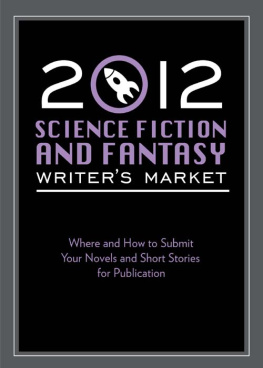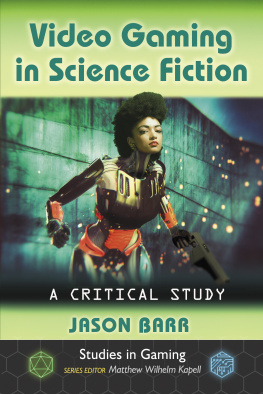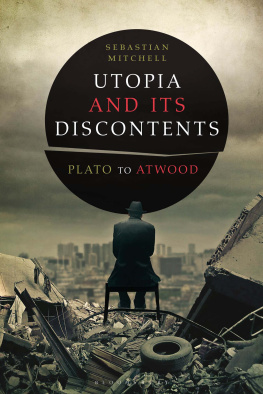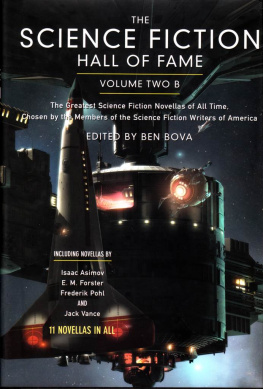Contents
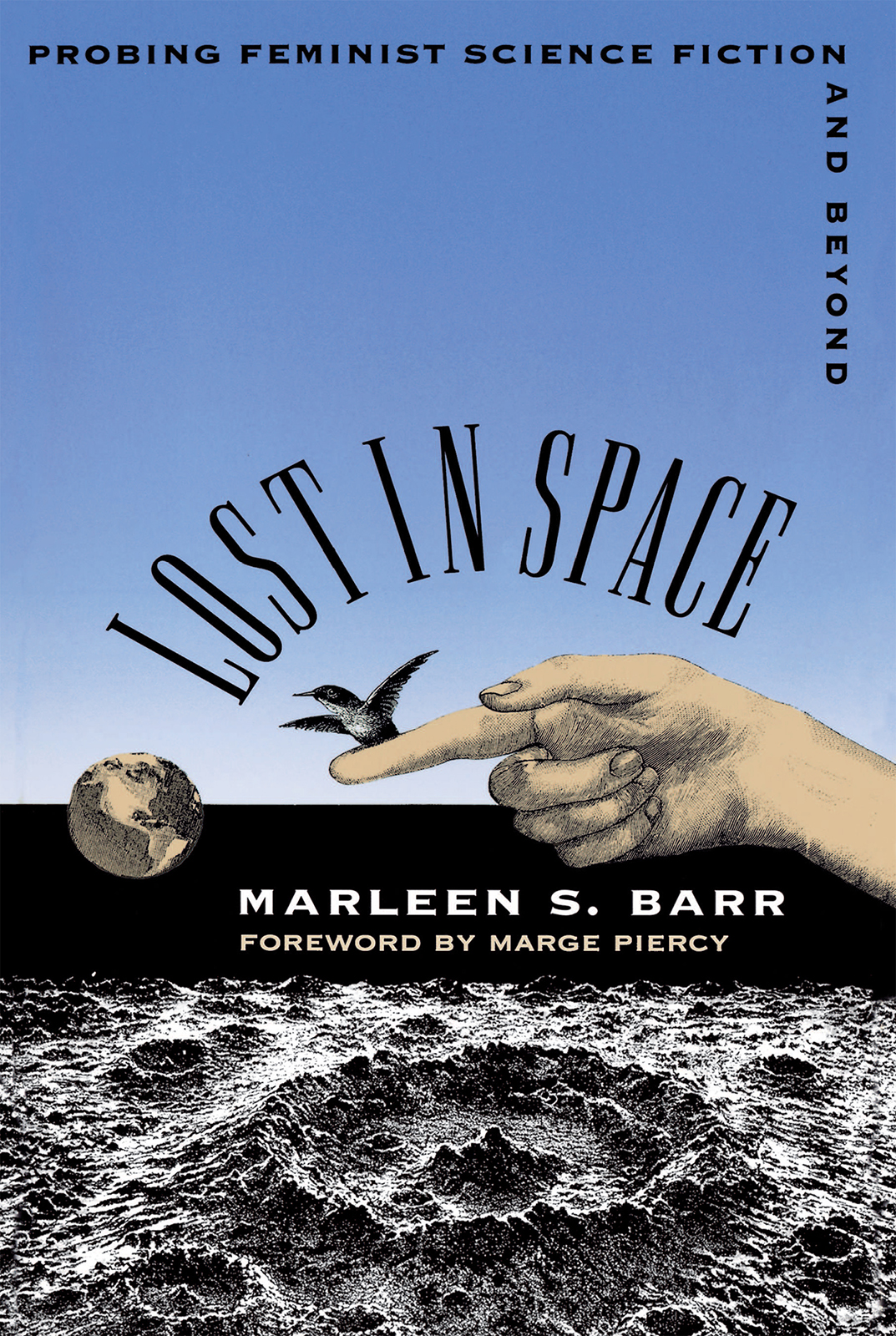
LOST IN SPACE
1993 The University of North Carolina Press
All rights reserved
Manufactured in the United States of America
The paper in this book meets the guidelines for permanence and durability of the Committee on Production Guidelines for Book Longevity of the Council on Library Resources.
Library of Congress
Cataloging-in-Publication Data
Barr, Marleen S.
Lost in space: probing feminist science fiction and beyond/by Marleen S. Barr,
p. cm.
ISBN 0-8078-2108-X (alk. paper).
ISBN 0-8078-4421-7 (pbk.: alk. paper)
1. Science fiction, AmericanWomen authorsHistory and criticism.
2. Science fiction, EnglishWomen authorsHistory and criticism.
3. Feminism and literature. 4. Sex role in literature. 5. Women and literature. I. Title.
PS374.S35B33 1993
813. 08762099287dc20
93-12466
CIP
Permission to reproduce previously published material can be found on pages 223-24 of this volume.
97 96 95 94 93 5 4 3 2 1
this book was digitally manufactured.
ForNorman N. Holland,
who told me to write in my own voice
andJane Kelley Holland,
who always encourages me
FOREWORD
MARLEEN BARRS LOST AND FOUND
Marleen Barr is in one of her incarnations the rediscovered and refurbished girl child of her critical essays, in which she pursues the image of the girl not yet crippled by sex roles and punishments, willful and self-determined. This girl child Marleen stands outside the elaborate imitation Gothic edifices of academic criticism and says, But Why and How Come and Why Not and Who Says So and Phooey. She keeps asking, but how come you leave out all the fun and really inventive stuff?
She has a sharp, inquiring, and mischievous mind. All cultural artifactsfrom art deemed high and awarded Nobel Prizes to television re-runs that secretly form our inner world of common images are the matter of her discourse.
She writes wickedly too and she will surely be punished for it by being taken less seriously than if she had taken the trouble to write badly. She invents jargon, as all critics must, but keeps it to a minimum. Whether or not you can accept some of her wilder interpretations and more heterogeneous yokings of disparate writers, you will always follow her argument, because she has taken great care to lay it out clearly for you. But her readings of the various texts she discusses are always illuminating and fascinating, and will undoubtedly send many readers to those texts for the first time as well as calling us back to a new reading of something we had thought we had understood or that we had dismissed unfairly.
Now cultural critics are exilers or shepherds. Exilers erect standards which they take great pains to prove nobody meets but one or two heroes of the mind. They are always wanting to lop off the head of that ones novel or the tail of this one or tear out the faithless heart of that other. Think of Helen Vendler confronting yet another poet who is not Robert Lowell.
Shepherds pursue through rocks and thorn bushes the lambs that have been labeled as straying, and they are to be brought back into the fold and properly explained and renamed. They did not mean to go off into that arroyo into lostness. They were all of the time beating a new path to the true path. It just requires a different perspective.
Barr is one of those includers. She finds feminist creation and recreation of our somewhat common culture in the expected places, but she also finds it in the work of men most women would not anticipate finding enlisted under the banner of womens self-determination and the reconstruction of literature under the force of the female imagination.
One of Barrs intentions is to rescue womens science fiction from the ghetto of intellectual neglect where it has been in exile. If you doubt the fear of that label, when my novel He, She and It won the Arthur C. Clarke award for the best work of science fiction published in the United Kingdom, my American publisher would not sticker the books for fear winning this prize would actually hurt sales. You dont want it shelved among science fiction, she said. Indeed, of all my novels, this oneone of the most ambitious and complexreceived the fewest reviews in the feminist press, because of its genre.
The way to get the wildebeest into the tent is to build a bigger and differently shaped tent, which is what Barr is doing wittily and inventively. The name of the new tent is feminist fabulation. She wants to rescue works of science fiction from critical neglect and intellectual dismissal. She redefines the postmodernist critical canon to include feminist fabulationworks of science fiction, utopias, fantasywhich share with certain works in what has been called the mainstreama direct or indirect restructuring of patriarchal imperatives and mythologies.
Such works of feminist fabulation deconstruct the dominant myths of our culture from within or refract them through altered realities; or simply create realities in which such assumptions as we daily make about up and down, good and bad, deserving and reprobate, are turned about ninety or one hundred eighty degrees or simply ignored and replaced by something quite, quite different.
When first-rate work is exiled from the canon because of how it is labeled and thus perceived and then dismissed from intelligent attention, a mission of rescue is desperately required. Marleen Barr teaches us how to view a whole set of writings by and about women by renaming the set which they compose and by then repositioning these works inside the redrawn map of postmodernist narrative. This is a highly readable and lively argument which I fervently hope will provide a framework for that reevaluation of the texts she discusses and others neglected and spurned because they are considered neither mainstream nor absurdist nor experimental, but something else. Barr has redefined a mainstream feminist fabulation that includes griffins and minotaurs with the Persians and poodles, chickens and wolves.
Marge Piercy
ACKNOWLEDGMENTS
I direct special thanks to Peter Bauland, Carol Braham, Terry Brown, Tony Distler, Monica Elbert, Minrose Gwin, Cheryl Herr, Edward James, Eric S. Rabkin, Ruth Salvaggio, Robert Shelton, Darko Suvin, and Beth Tipperman.
Sandra Eisdorfer is the most wonderful editor any author could ever hope to encounter. Our work on Lost in Space launched a new friendship as well as a new book. I am especially grateful for the help I received from my copyeditor, Stephanie Wenzel. I thank Brooks Landon and Ursula K. Le Guin for their attention to my work.
Norris Compton Barr and I appreciate the generosity of my parents, Roslyn and George Barr.
It is a special pleasure to dedicate this volume to Norman N. Holland and Jane Kelley Holland. Thanks Norm and Janefrom the variations on my identity theme that benefited from your encouragement and advice.
LOST IN SPACE
INTRODUCTION
Patriarchal Hocus-pocus
Anyway, no woman wants her bedroom to be a garage, and least of all for a boring car.
Saul Bellow, A Theft
The proper use to which Jameson refers is presumably the socially sanctioned use, just as stop/ready/go is the proper use or interpretation of the red/orange/green traffic light system. For feminists to intervene in these social contracts, to de/re/construct them, revealing their ideological significances, means a fundamental intervention in the relationship between reader and text, a disruption of the readers conventionalized understanding of the contract, the literary institution of the particular genre. To intervene without causing a traffic jam or a major crash is an extremely delicate procedureand maybe there are times when the crash makes sense.



